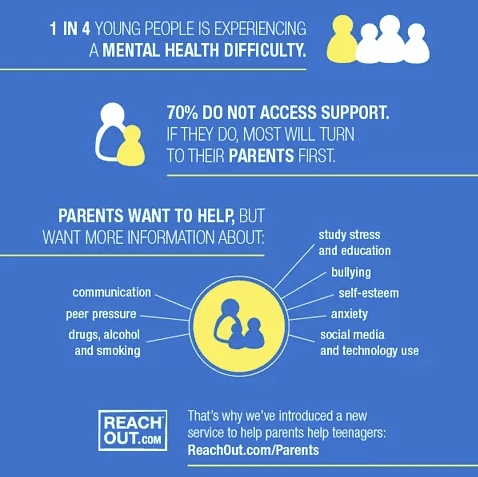CARDIJN COLLEGE
Student Counselling
A range of organisations are also available for young people to call, email, chat online or visit for more information and resources:
Headspace – www.headspace.com – information and resources or www.eheadspace.org.au to chat to a counsellor
Kids helpline (ages 5-25) https://kidshelpline.com.au – information and resources or free call 1800 55 1800
ReachOut – www.au.reachout.com – information and resources
Youth Beyond Blue – www.beyondblue.org.au/getsupport – information and resources or to email /chat to a counsellor or call 1300 22 4636
Parent Helpline SA – www.parenting.sa.gov.au – information and resources or call 1300 364 100
Checklist for Parents
Keeping an open line of communication is important for supporting your child throughout their secondary schooling. It might be helpful to use the following checklist when connecting with your child.
- Are they talking about friends in a positive light?
- Are they speaking positively about their schooling and does their behaviour reflect this?
- Have they established a homework routine?
- Are they looking at opportunities the school offers and are they engaging in them, eg. sporting teams, clubs, leadership roles?
- Are they going to bed at an appropriate time for their age group?
- What time are they going to bed vs going to sleep?
- Do they have technology-free time in the evening?
- Do they feel as if they are accomplishing some success in their new year at school?
At Cardijn we are fortunate to have an experienced team of counsellors that are available to help and support students. If you would like your child to have some extra support, encourage them to make an appointment with one of us by sending an email to [email protected].
Availability
Tina Hards: Counsellor (Monday – Friday)
Dianne Hayes: Counsellor (Monday – Friday)
Aleks Cabot: Counsellor (Monday, Tuesday, Thursday, Friday)
Emily Thomas: Counsellor (Monday, Thursday, Friday)
Shannon Wren-Kalenjuk: Counsellor (Tuesday, Wednesday, Friday AM)
If you have any concerns regarding your child and their wellbeing at school, please feel free to contact your child’s homeroom teacher or House Leader.
Student Wellbeing
Following are a few tips to help support your child during the waves of stress throughout the year.
Looking after their wellbeing;
- Try to encourage eight hours of sleep per night
- Regular balanced meals and snacks – breakfast is the most important meal of the day – if they are in a rush, take a piece of fruit or yoghurt to eat on the ride to school
- Drink plenty of water, especially during winter, your body still needs it even if you don’t feel hot
- Exercise – helps to release any tension and release those ‘feel good’ endorphins. Even a 20 minute walk around the block will help to clear their head and release endorphins.
- Take regular study breaks – their brain needs a break too!!
- Rewards – if they have a task that they don’t want to do, help them to plan ahead and make a reward for finishing that task. Celebrate their achievements. There’s nothing like a good Netflix session after some hard studying!!
- Encourage some ‘me’ time – make sure they have a balance between school/work/sports/social life. Most importantly make sure that they have one ‘study free’ day per week where they can do something that helps them to recharge their batteries

There are some great free apps available that can also help with any issues with sleeping, (iSleep Easy or Pzizz). If they are unable to relax or want to try meditation or mindfulness, download Smiling Mind.
There are also simple things they might be able to do at home – read, try a new hobby or skill, get creative with arts and crafts, baking/cooking, take a bubble bath, watch a favourite TV show or movie. These can also be used as rewards.
School Holidays
The school holidays can be a challenging time for young people to navigate.
Holidays can take students away from friends and their usual school supports. Changes to routine can cause some young people to feel stressed, isolated, and alone. Parent/carer support is very important during this time. We would encourage you, where possible, to connect directly with the families of any young people identified as particularly vulnerable or at risk, as well as providing additional supportive information to all families.
headspace has some information about keeping healthy over the holidays that may be helpful to share with young people and their families. Please also see the Be You Mental Health Services and Support infographic.
Tips for adults supporting young people:
- Encourage them to stay connected: Social relationships are an important aspect of young people’s general wellbeing. Friends can provide both play and support, and spending time with friends is also important for keeping and building existing friendships.
- Encourage them to stay involved: Whether it is work, hobbies, clubs, or sports – involvement with these can help a young person feel connected to their wider community.
- Partake in physical activity: If your young person is feeling down or finding things difficult, physical activities such as walking around the block can help relieve stress and frustration.
- Keeping to a regular routine: Getting a good sleep each night helps young people feel energised, focused, and motivated. Getting up and going to bed at the same time each day can help normalise their body clock.
- Help-seeking & support: Ensure that young people have access to support numbers, locally and nationally.